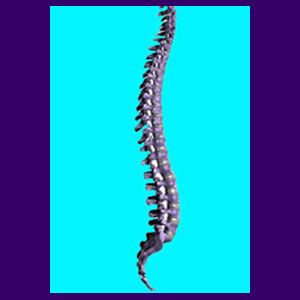
A spine doctor is a general term for any back pain specialist who diagnoses and treats conditions which affect the human vertebral column. The vast majority of back care practitioners believe that back and neck pain is the direct result of abnormalities in the spinal structures. While this is possible, it does not make much medical sense that almost everyone develops the exact same degenerative changes in their spines as they age. However, only some patients experience painful symptoms and these symptoms vary greatly from one patient to another, even when the anatomical “defects” deemed responsible are identical..
Add to this the fact that even major medical associations have recently begun to caution doctors not to assume structural irregularities are the true sources of pain in most chronic complaints and you can see the huge elephant in the room when it comes to back pain therapy.
Basically, doctors typically blame conditions which may not be causative. This is mostly due to antiquated medical knowledge, a purely Cartesian philosophy proven to be unenlightened and sometimes, pure financial greed on the part of the treating physician.
Spine Doctor Diagnosis
A spinal specialist can be a medical doctor, physical therapist, chiropractor or some type of complementary medicine practitioner. The doctor’s training and ideology are almost irrelevant to the fact that they will look for issues in the spine that might cause pain.
The most commonly diagnosed conditions theorized to source back and neck symptoms include: herniated discs, spinal stenosis, degenerative disc disease and spinal arthritis. While these fear-inspiring conditions receive the bulk of back pain treatments, it is common medical knowledge that they are all completely normal and universal for most people to experience in life. That’s right… They are normal. It is almost unheard of to find an adult without one or more of these spinal conditions, whether they are experiencing pain or not.
Diagnostic imaging studies often discover these conditions by accident, while testing for something unrelated to back pain. These patients have not experienced any symptoms, even though their spinal abnormalities might be considered severe by diagnostic standards. Meanwhile lesser forms of the same conditions are blamed for creating extreme pain in other patients.
How does it all make any sense?
Specialist Spine Doctors
Many spinal specialists can tell you the name of every nerve, bone, muscle, ligament and tendon in the back. They know everything about spinal anatomy, yet continue to diagnose conditions from structures that often can not possibly be the actual cause of the pain. This is borderline criminal behavior, yet it goes on every day all across the world.
Patients often experience symptoms in a distinct anatomic location that are blamed on a coincidental condition that can not possibly be the symptomatic source. The spinal condition might affect a particular nerve root, yet symptoms are experienced in an area not even served by that affected nerve.
Often, the symptoms move around and change, yet the diagnosed scapegoat spinal condition remains static and treatment is not altered. How does it make sense to blame pain on a completely innocent coincidental spinal abnormality? This is the multi-billion dollar question…
Advice for Patients When Consulting with Back Doctors
The very rules medical science uses to diagnose pain have been flawed from the beginning and only now are doctors finally getting a better idea of the true nature of many patient complaints. New doctors have access to far improved educational components than doctors did just a decade ago. Now, young doctors are taught to question more and assume less.
Mindbody medicine has become an inherent component of physical healthcare and is reflected in the training doctors now receive before going into private practice.
Most of all, doctors are no longer afraid to tell a patient their pain may be idiopathic and not sourced from a definitive causation. While this is frustrating and not as profitable for care providers, at least it is a step forward compared to misidentifying an incorrect cause and treating that cause unnecessarily for years, without success.
If you have been in treatment for a long time with poor results, you need a change. The answer for your misery is not in finding the correct specialist who may hold the final solution to your pain question. The true answer is to study why your pain might not make sense according to the diagnosed condition. Sometimes you must repudiate the standing diagnosis in order to get better.
Many of the abnormal conditions in your spine are universal and should actually be called spinal normalities instead of abnormalities. Remember this during your research.
The bottom line comes down to this… Never assume a disc or bone issue is the source of pain unless it has been studied exhaustively and proven definitively to be so. This holds true regardless of whether you are a patient or the most experienced spine doctor in the world.





